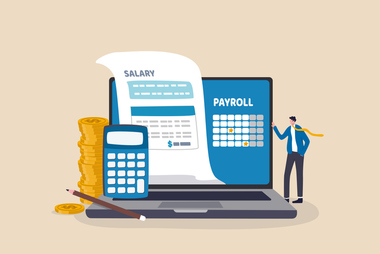Estate planning is about defining and living out your legacy during your lifetime. It enables you to enjoy the impact your plan has on the people and organizations you support. But there are a lot of myths that still need debunking, which is why we are Exploding 6 Estate-Planning Myths below:
Myth #1: Estate planning is only for the wealthy.
There’s a common belief that estate planning is necessary for multimillionaires only. But if you own property and assets or have loved ones that depend on you to provide for their income or care, use an estate plan. Basically, if you have money, real estate or a comic book collection, you have an estate. Use estate planning to protect your spouse, minor children or other dependents.
Myth #2: Estate planning is only about distributing your assets after you’re gone.
Your legacy includes charitable planning goals and gifting strategies, but you should see your plan as passing down less tangible assets that are meaningful to you. Also, you need to prepare for unexpected events; name a guardian for your kids to take care of them and manage whatever funds you leave for their benefit.
Myth #3: A will oversees the distribution of all your assets.
Some assets — life insurance policies and qualified retirement assets like 401(k)s and IRAs, for example — may technically not be covered by your will. A will doesn’t override all your beneficiary designations. Items left to ex-spouses may go to them no matter what your will says. So you must review beneficiary designations to update an IRA account to your new spouse, for instance.
Other important legal documents include a power of attorney to carry out any legal or financial decisions that have to be made on your behalf, a living will and a trust. A trust can accomplish a lot of things more efficiently than a will, even for those with modest estates, so don’t rule it out.
Myth #4: An estate plan is a once-and-done event.
Once the plan is in place, it’s not over. Preferences and goals change over time. Laws change. Tax rates are adjusted. You rethink your charitable strategies. You may marry or divorce or welcome a new child or grandchild; minor children become adults. Or you may move to another state — all reasons to revisit your plan.
Myth #5: Taxes eat up the lion’s share of any estate.
Although estate taxes are real and the rates are quite high, topping out at 40%, only people with estates worth millions of dollars are affected by federal estate taxes. Many states don’t have estate or inheritance taxes at all, though some that do have lower thresholds than the federal rate.
The estate tax exclusion increased significantly under the Tax Cuts and Jobs Act of 2017. Although there may be future changes, the general trend has been the federal estate tax affects only the very wealthy. Keep abreast of any state laws that may change and impose a separate estate or inheritance tax.
Myth #6: None of this matters anyway — I’m too young to need a will.
This is one of the biggest myths of all! First of all, even individuals without a spouse or children should make provisions for how their worldly goods will be disposed of after they’re gone. And if your situation changes later, you’ll already have a template in place. Even if you don’t have close family, you may want to leave your assets to a meaningful charity.
Let us know how we can help you create an estate plan that’s right for you here at Kollath CPA. Exploding 6 Estate-Planning Myths is an important part of creating a plan that works for you and your loved ones.





